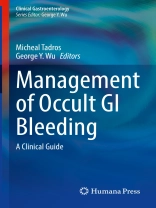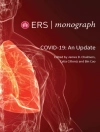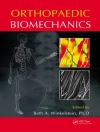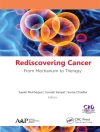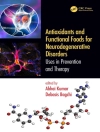This book provides a concise, state-of-the-art overview of occult GI bleeding. The text reviews the epidemiology, screening and detection methods for localization, and prominent treatment strategies for occult GI bleeding. It also features a dedicated section on special patient populations including children, premenopausal women, older adults, and patients with other predisposing, and complicating medical conditions. This volume is supplemented with numerous color illustrations, photographs, and table, and is one of the few dedicated resources on occult GI bleeding.
Written by experts in the field, Management of Occult GI Bleeding: A Clinical Guide is a valuable resource for clinicians, practitioners, and students who are involved in the treatment of patients with occult GI bleeding.
Tabela de Conteúdo
An Introduction to the Clinical Approach and Management of Occult Gastrointestinal Bleeding.- Non-Invasive Office Screening Methods.- Endoscopic Detection.- Radiologic Detection.- Esophagus.- Etiologies of Occult Gastroduodenum Bleeding.- Occult Small Bowel Bleeding.- Occult Lower GI Bleeding.- Occult GI Bleeding: The Biliary-Pancreatic System.- Bipolar and Monopolar Cautery, Clips, Bands, Spray, Injections, Embolization, and Minimally Invasive Surgery.- Pediatrics.- Premenopausal Women.- Occult GI Bleeding: Considerations in Older Adults.- Gastrointestinal Bleeding in Native Cardiovascular Disease and Implantable Cardiac Devices.- NSAIDs/Anticoagulation.- Genetic Causes of Occult Gastrointestinal Bleeding
Sobre o autor
Micheal Tadros MD, MPH, FACG
Associate Professor of Medicine
Albany Medical College
Department of Medicine
Division of Gastroenterology and Hepatology.
Department of Medical Education Gastroenterology and hepatology Theme Leader
Albany Medical College
Schenectady, NY
USA
George Y. Wu, MD, Ph D (FAGA, FAASLD)
Emeritus Professor of Medicine
Chief, Section of Hepatology
Herman Lopata Chair in Hepatitis Research
University of Connecticut Health Center
Farmington, CT
USA
